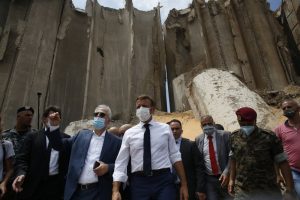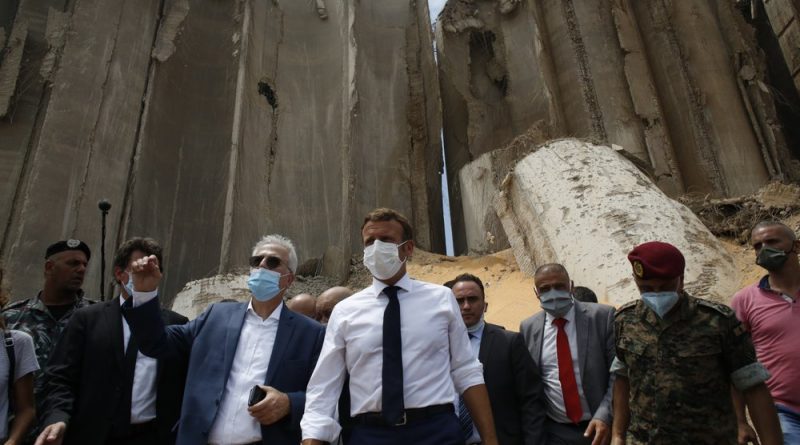As Lebanese Prime Minister Struggles, Macron Intervenes
Radha Patel
International News Writer

As of August 31st, former Lebanese Ambassador to Germany, Mustapha Adib has been designated as the new Lebanese Prime Minister. In the wake of the devastating August 4th Beirut explosion, the government tapped Adib as a replacement. Lebanon has battled an economic crisis for many years, thus the explosion hit the country especially hard, costing billions of dollars in damage for a country which was already floundering economically, with its currency losing up to 80% of its value last year. Acquiescing to popular demands for change, Lebanon’s entire cabinet resigned, along with the previous Prime Minister Hassan Diab six days later, as the population added the explosion to their list of damages caused by political corruption and negligence, as the government failed to sufficiently respond to the crisis that left thousands injured and hundreds dead.
The Lebanese government appointed Mustapha Adib hours before French President Emmanuel Macron was scheduled to arrive in Beirut. Macron was originally visiting to mark the 100th anniversary of the establishment by France of Greater Lebanon. In light of recent events, however, the French President turned to international leaders to provide aid to Lebanon. Amidst the unrest among protesters and the tragic consequences of the explosion, he hoped to quickly rally the support of other leaders to curb further chaos and urged Lebanese officials to act quickly. Macron has stated he intends to make sure that the international aid to Lebanon is not pocketed by corrupt officials like it has been in the past. The French President threatened sanctioning political officials should they not agree to independent audits of the central bank to verify the use of these funds. He has visited areas damaged by the blast, and Lebanese citizens impacted by the disaster, often seeming more gregarious and receptive than many of Lebanon’s own politicians. As Macron said in a recent interview with Politico, “It’s a risky bet I’m making, I am aware of it … I am putting the only thing I have on the table: my political capital.”
While many have welcomed French involvement in Lebanon, others in Lebanon and in France have criticized Macron’s overtures as merely a neo-colonial effort to gain more power, or another unnecessary foreign entanglement. It remains to be seen whether any significant change will come for Lebanon, or if the country will settle back into its precarious governance by corrupt sectarian leaders.
Contact Radha at patelra5@shu.edu

